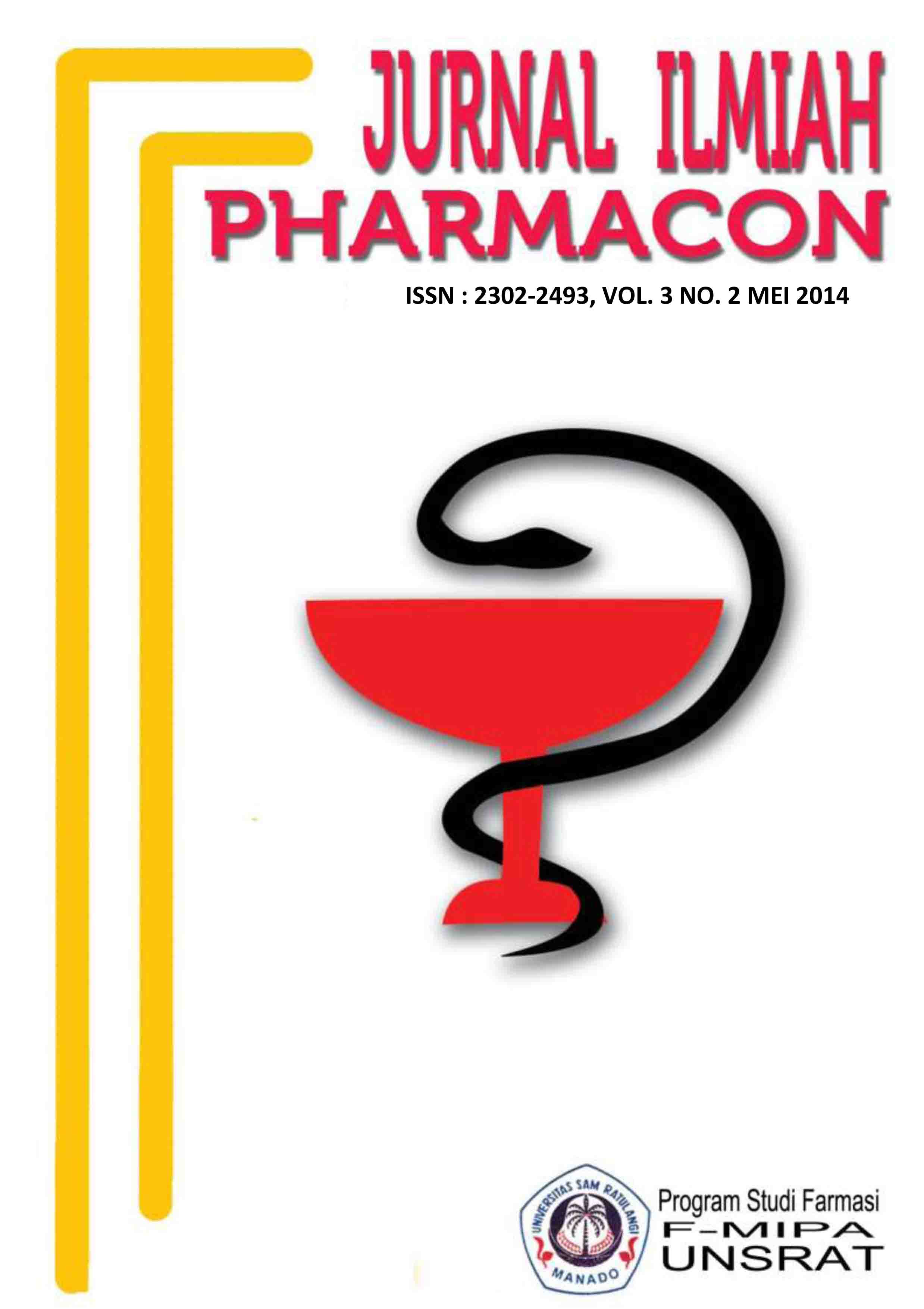UJI EFEKTIVITAS EKSTRAK ETANOL TUNAS PISANG GOROHO (Musa acuminate L.) TERHADAP PENURUNAN KADAR GULA DARAH TIKUS PUTIH JANTAN GALUR WISTAR (Rattus norvegicus) YANG DIINDUKSI SUKROSA
DOI:
https://doi.org/10.35799/pha.3.2014.4772Abstract
The study aimed at finding out the Effectiveness of goroho shoots (Musa acuminafe L.) ethanol extract on blood sugar decrease of white mile wistar (Ratus norvegicus ) induced with sucrose. Completely randomized design method was used in this experiment. The subject of the experiment were 15 white male Wistar (Rattus novergicus) were divided into 5 (five) groups of treatment, namely negative control group (CMC 0,5% suspension), the dose 0,63 mg/kgBW positive control group (glibenklamid suspension), the dose 0,05 g/kgBW, 0,11 g/kgBW , and 0,22 g/kgBW of goroho shoots ethanol extract group. Data obtained from examination of the fasting blood sugar were 30 minute after induction with sucrose and at minute 15, 30, 60, 120 after treatment was given. Data were analyzed using spss ver.20. the differences between treatments were analyzed using one way ANOVA. The analysis revealed a significant difference between negative control and treatment, negative control and positive control but did not show a significant difference between treatment groups with the positive control. The increasing dose of goroho shoots ethanol extract show a better result.
Â
Key words : goroho shoots extract, blood sugar level, sucrose.
Downloads
How to Cite
Issue
Section
License
Authors who publish with this journal agree to the following terms:
- Authors retain copyright and grant the journal right of first publication with the work simultaneously licensed under a Creative Commons Attribution-NonCommercial 4.0 International License that allows others to share the work with an acknowledgement of the work's authorship and initial publication in this journal.
- Authors are permitted and encouraged to post their work online (e.g., in institutional repositories or on their website) prior to and during the submission process, as it can lead to productive exchanges, as well as earlier and greater citation of published work (See The Effect of Open Access)










